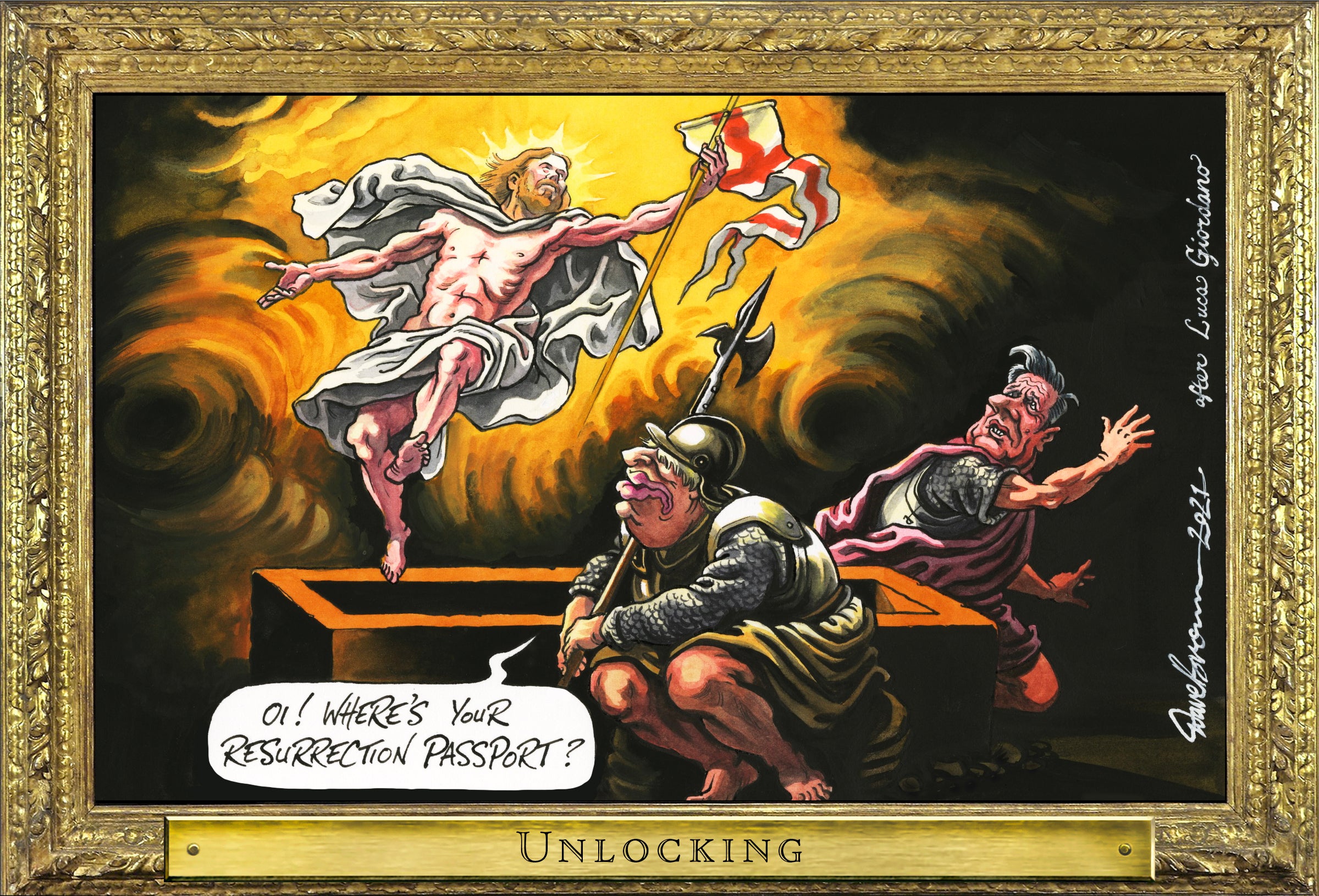The Independent's journalism is supported by our readers. When you purchase through links on our site, we may earn commission.
Vaccine passports must not become a backdoor route to other infringements on our liberties
Editorial: One way to avoid this would be to have temporary powers, perhaps lasting six months, that needed to be renewed by parliament when they lapsed

What I don’t think we will have in this country,” Boris Johnson said in February, “is vaccination passports to allow you to go to, say, the pub or something like that.” The prime minister has travelled a long way in a short time. He said on Thursday that what ministers now prefer to call “Covid status certification” could provide “maximum confidence to businesses and customers”.
Mr Johnson will set out his thinking on Monday, when the interim findings of the government’s review of this highly sensitive issue is due to be published. There is little doubt that a form of vaccine passport will be needed for whatever international travel Britons can undertake because some other countries will insist on them.
But their domestic use in pubs, clubs, theatres and sports stadia is more problematic. Although such passports could increase take-up of the vaccine, which would be a good thing, the government must handle this issue with the utmost care. It will accept that the jab cannot be the only “freedom passport”, to use Mr Johnson’s language; not everyone can have it, so people would also be able to use the NHS app to show a recent negative test or that they had antibodies after previously contracting the virus.
Not for the first time, Mr Johnson appears to be making policy on the hoof. He suggested it might be up to pub landlords whether or not to insist on passports, and then backtracked. He is now hinting strongly that passports in some form will be the quid pro quo for lifting all the domestic restrictions by 21 June, in line with his road map. “It may be a way of ensuring we can get more people back doing the things they love,” Oliver Dowden, the culture secretary, said on Friday.
However, it is difficult to see how such a scheme could operate until after all adults have been vaccinated; over-18s are not set to have been offered their first dose until the end of July. So it seems that trials will take place in the meantime.
Mr Johnson has managed to unite unlikely allies such as Jeremy Corbyn and Iain Duncan Smith, who are among 72 MPs to declare vaccine passports would be “divisive and discriminatory”. Ominously, the cross-party opponents include 41 Conservatives, enough to wipe out the government’s Commons majority. The Liberal Democrats will live up to their name by voting against the move. Keir Starmer stopped short of that but, perhaps sensing an opportunity to be different to the government without undermining it in a national crisis, suspects that “there will be a British sense that we don’t actually want to go down this road”.
Opinion polls show majority public support for the idea, though a significant minority have reservations. There are certainly arguments in favour. People should not enjoy the right to put the lives of others at risk. Passports could build confidence and help businesses emerge stronger from the dark tunnel of the pandemic.
Read more:
But Mr Johnson, who would surely be raging against vaccine passports if he were still a Telegraph columnist, needs to answer legitimate fears about civil liberties, the security of medical data and forgery, particularly for people without a smartphone. The hospitality sector has genuine concerns about the practicalities and costs of a mandatory scheme and there is a strong argument for it to be voluntary for business.
It would be discriminatory to insist on vaccine passports in the workplace. Safeguards must be built into the programme to prevent the creation of a two-tier society. The risk of doing so is illustrated by the worryingly lower take-up of the vaccine among ethnic minorities.
Vaccine passports may have a role to play in the coming months but must not, however unintentionally, become a backdoor route to a national identity card system. One way to avoid that would be to have temporary powers, perhaps lasting six months, that needed to be renewed by parliament when they lapsed.
Join our commenting forum
Join thought-provoking conversations, follow other Independent readers and see their replies
Comments